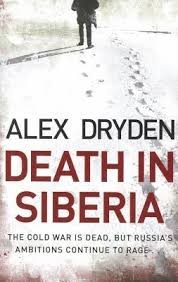
The Cold War is dead, but Russia’s ambitions continue to rage.
So proclaims the front cover blurb of this 2011 thriller, in a bombastic non sequitur that typifies the return of ‘big bad Russia’ to Western thriller writers’ armoury at the end of this century’s first decade.
The Cold War ended at the end of the 1980s. For a decade or more, if thriller writers wrote about Russia, they wrote of decline and gangsterism. Then as a recovering Russia reasserted itself on the international stage, it once more became the ‘other’ against which Western spies and governments fought.
Russia in Fiction reckons that this return to a portrayal of Russia in these terms can be dated to around 2010. Alex Dryden was one of the earliest authors to embrace it.
Alex Dryden is a pseudonym. Russia in Fiction has never been able to find his real name.
His publisher’s website states that
Alex Dryden is the pseudonym of a British writer who worked for the British security services. He has had extensive first-hand experience with Russia for many years.
https://www.harpercollins.com/blogs/authors/alex-dryden
Dryden as a thriller writer appeared in 2008. He wrote a tetralogy within three years based around the character of Russian agent Anna Reznikov (unfortunately not Reznikova). And then he appears to have stopped writing fiction.

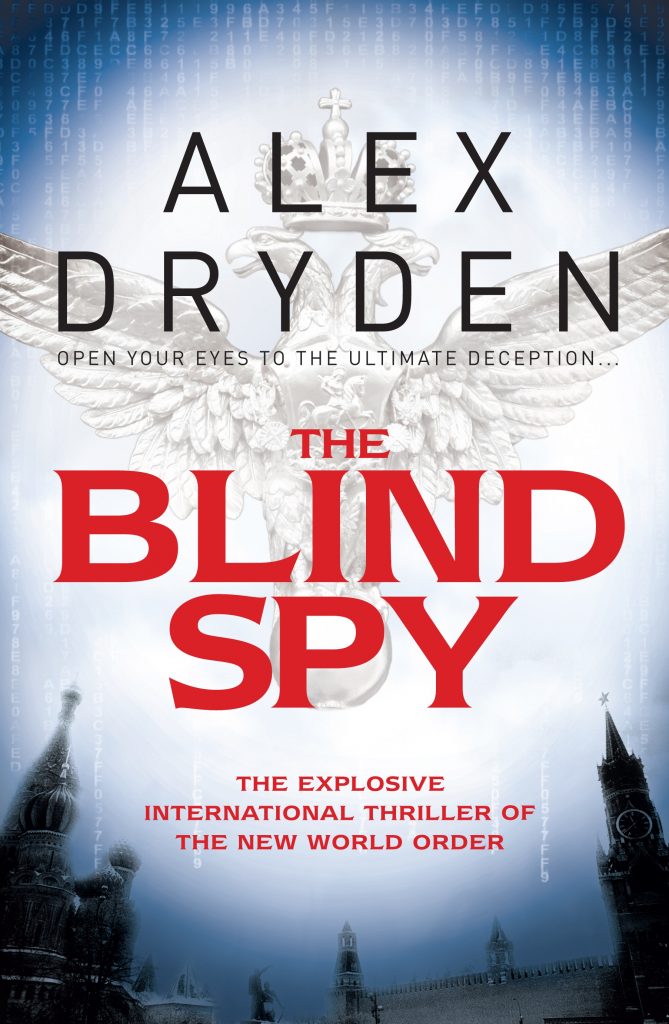
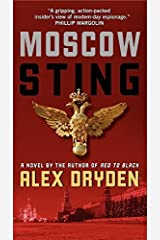
The first of these four novels —Red to Black— was published with some publicity push; an appearance on The Late Late Show in the US, a front cover quote from Stephen Fry calling it ‘brilliant and unforgettable’.
Russia in Fiction is starting with the last in the tetralogy, Death in Siberia. And whilst its three predecessors are excellent, this is less so. It is a different sort of book from what has gone before, and it has that feel of being written in too much of a hurry, with unlikely plot twists, and a sense that the author is desperate to get his characters out of the situation in which he has put them and be done with it.
All of which is a bit of a shame, because Dryden has created a previously well drawn and interesting character in Anna Reznikov, and the preceding three novels are terrific. Russia in Fiction notes that the publication date for Death in Siberia is 2011, the same year as number three in the series, The Blind Spy. There has been no follow-up to Death in Siberia.
From the Russia in Fiction perspective, Dryden knows Russia. That much is clear both from this novel and from the rest in the series. Death in Siberia proceeds from the now familiar set up of Anna Reznikov working for Burt Miller, flamboyant multi-billionaire one time CIA agent and now head of the world’s largest private intelligence company, Cougar Intelligence Applications. CIA. Get it?
But the personal depth has gone. The quixotic Logan and Anna’s son, little Finn, are both absent, and new characters —such as Russian/Evenk policeman Alexei Petrov— do not quite make up for their absence.

The character of Anna Reznikov herself is something of a type in Russia in Fiction thrillers; female Russian spies who are tall, good-looking, and, er, ‘kick ass’.
As well as Reznikov, there is Jason Matthews’ Dominika Egorova, David Lindsey’s Irina Izmaylov, and —in the world of movies— the titular lead in Luc Besson’s Anna (2019), played by Sasha Luss.
Instead of the high-level, globe-trotting intrigue to which Miller, Cougar, and Reznikov are both used and suited, in Death in Siberia we get one of those rather claustrophobic thrillers about Russia, where the characters are sent ever deeper into the remote heart and/or north of that vast land.
Think Gerald A. Browne’s Hot Siberian (1989), Lionel Davidson’s Kolymsky Heights (1994), Robin White’s Siberian Light (1997) and The Ice Curtain (2002), Martin Cruz Smith’s The Siberian Dilemma (2019), and to some extent, Orest Stelmach’s The Boy From Reactor 4 (2013) – there are plenty of these, some very good, though it’s not really our favourite sub-genre.
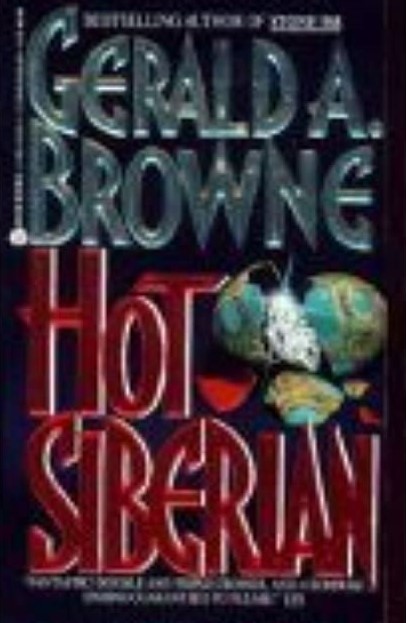


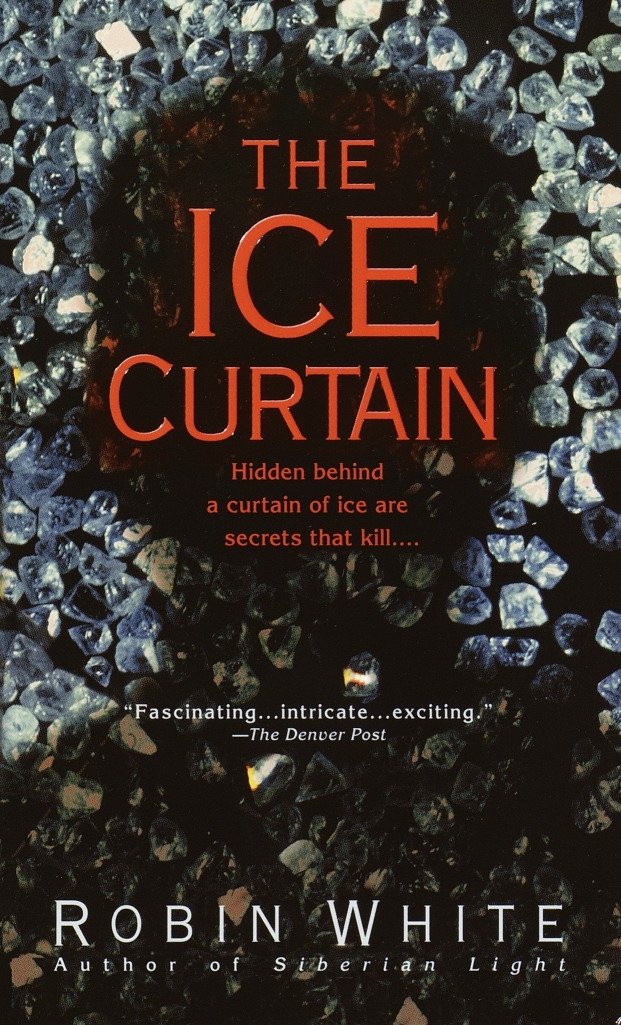
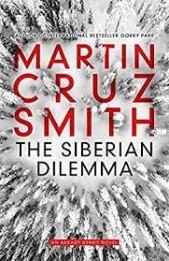
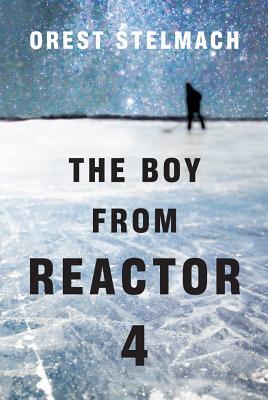
In such novels, any sense of international intrigue and high politics tends to be overtaken by questions of climate and terrain. And once you have put your characters in such remote settings, you have got to find a way to get them out —a process which can become as convoluted and tedious in fiction form as it is in real life.
(Russia in Fiction knows, having once spent 3 weeks in a small town just to the north-east of Outer Mongolia; a few crumbling concrete tower blocks and a train station thrown up in the middle of beautiful, endless, remoteness.)
The plot revolves around Anna going deep undercover to find a Russian physicist who has discovered a great advance in nuclear fusion, and —in keeping with Dryden’s view of how Putin’s Russia works— has been locked away in order that this world-changing scientific breakthrough remains secret. A similar scenario can be found in Lionel Davidson’s Kolymsky Heights (1994) and in Carmichael Smith’s Atomsk (1949).
What is good about the novel is that it shows great knowledge of the remote border areas of Russia, from the relatively impenetrable Mongolian border all the way up to the Kara Sea in the north, and of towns which rarely feature in thrillers, notably Krasnoyarsk and pollution-ridden Norilsk. Both of these are portrayed with a level of detail which makes us suppose that Dryden may well have visited them at some point.
Beaches as a place of refuge and rescue are a recurring motif in Dryden’s novels. By the end of this book, with Anna Reznikov yet again on a beach hoping for a motor launch to arrive and carry her to safety, Russia in Fiction was as desperate as Dryden seems to have been to get her out of there. We doubt she’ll be returning.
If readers will forgive the pun, it is disappointing that Dryden seems to have dried up. There really are some fairly unlikely twists in the plot of Death in Siberia, and the unconvincing way that characters for no apparent reason seem to side with Anna Reznikov at convenient moments becomes rather wearing. All of which is a pity, given the depth and the freshness of Dryden’s (and Reznikov’s) debut in the unusually compelling and nuanced Red To Black.